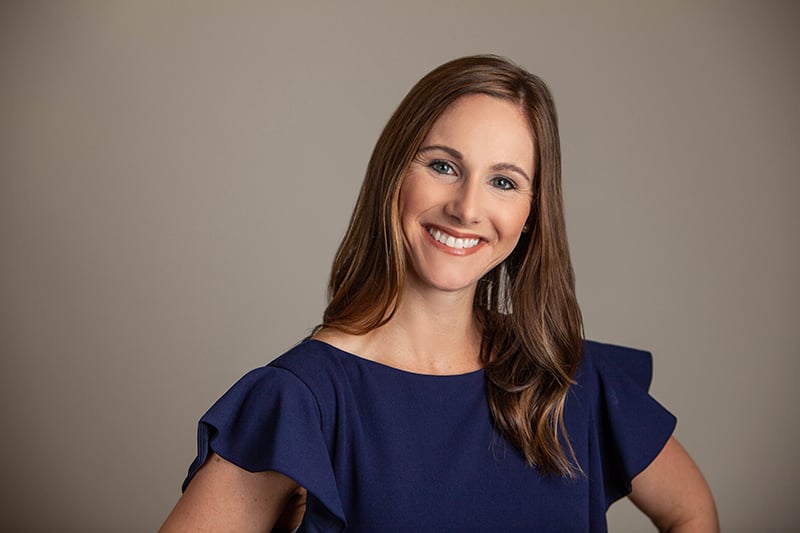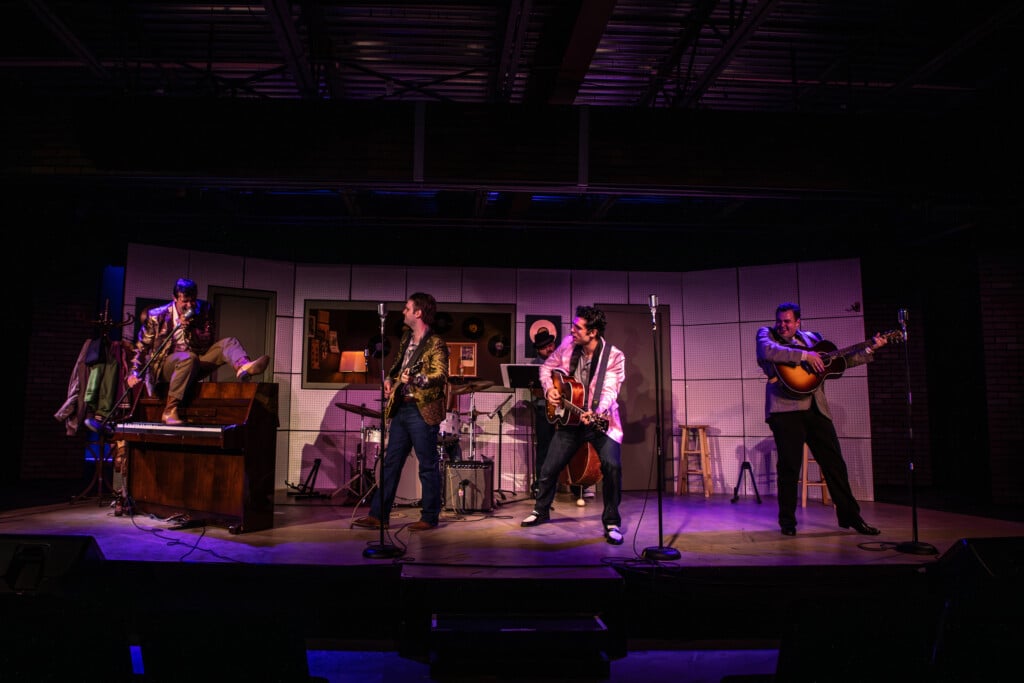Using the Power of Art, Todd Allen Changes Lives


Mari Darr~Welch Todd Eric Allen, artistic director and CEO of Northwest Florida Ballet (NFB), says the NFB training he received at age 14 turned his life around. The Business of the Arts by the NumbersState The last major economic impact study (conducted in 2008) reports that the arts and culture industry generates:
National
Source: Florida Division of Cultural Affairs |
Todd Eric Allen walked across Studio 1 to teach a technique class a few days after returning from Boston where he celebrated the Boston Ballet’s 50th Anniversary. Carrying a cup of coffee, wearing heeled dance shoes, a grey cardigan and loose cargo pants, he glided across the wooden floor. His perfect posture seemed natural, effortless. He was unshaven, yet neat. His quiet presence commanded the attention of two-dozen ballerinas ages 10 to 16 years old. Without being asked, they moved next to the ballet bars lining the sides and back walls and faced the mirrored front.
After a few warm up movements and a downward dog stretch, his body forming an inverted V-shape with hands on the floor, Allen, 47, rose. He faced the mirrors. Everyone watched as he demonstrated the first series of steps. “Okay? Everybody got it,” he asked rhetorically. Moving toward the stereo, he studied the ballerinas in the mirror. “Here we go. Standing tall. Be ready,” he said, pressing “on” with his finger. Classical music flowed across the studio. “Stomachs, stomachs, stomachs,” he said. For an hour, he demonstrated. They executed. He paced the studio to reposition a foot or a leg or offer instruction. “Spread your toes out in your shoes so you have a little more control … present your heel before you step.”
Allen uses the power of art to change lives. The CEO of Northwest Florida Ballet Academie in Fort Walton Beach, blended the discipline of and his joy for dance to inspire children over the past 19 years. Without a business background or degree, he transformed an afterschool ballet program into a full-day ballet school. He created a public-private partnership with the school district, which serves as a role model for other communities and created a pre-professional track for high school students.
Allen knew first-hand of ballet’s therapeutic and inspirational affects, especially for at-risk children. “I believe in the power of art. I was an at-risk kid too.” His mother raised three children. They were very poor.
A twist of fate brought Allen to dance. He suffered an injury playing football in middle school. During his rehabilitation, he was encouraged to go to ballet classes with his sister. On scholarship, he continued. Then it struck him. He knew this was want he wanted to do. “This is my chance,” he said. “Dance was my ticket out.”
Allen’s distinguished career included dancing professionally with the Louisville Ballet and the Boston Ballet for five years. A year later, in 1995, while with Le Gran Ballet Canadian, he accepted an invitation to return to his hometown and take over the afterschool ballet program operated since 1969 by his former teacher, Bernadette Clements Sims. With his expectant wife, Shari, also a professional dancer, they moved down from Canada.
“We came here to take the company to a different level,” said Allen. Returning to the aging, beachside town was an adjustment. “I felt like I was in the trenches,” he said when joking with friends. He was intrigued with outreach, having participated in programs while dancing for the Boston Ballet.
To grow the school, the Allens renovated an old Japanese hotel, The Nico Inn, a place where patrons sat on the floor while eating. Despite a cracked foundation, they repaired it and preserved the spacious entryway and expansive staircase to the second floor. Walls were broken down. In 2002, studios and classrooms were built up.
“I’m a dancer,” Allen said, laughing. “I had to soon realize that I had to become a fundraiser. I had to learn many things.” Allen wrote grants, taught classes, gave speeches and drew support for their four-year capital campaign. “Once we got this off the ground, things started happening around us. Businesses started popping up. This was a depressed area.” Publix moved in across the street in a new shopping center. Restaurants opened along the adjacent main street.
As they finished up the expansion, State Sen. Don Gaetz, then the Okaloosa County Superintendent of Schools, approached Allen. “He asked, ‘What would you do if you could do anything?’ ” Allen recalled. “I spent a few days in Louisville with my mentors and came back with an Americanized version of what you’d see in Europe at the Royal Ballet. It took off from there.” The Academie, a public-contract school, functions with the school district paying a portion of the expenses and salaries. “I write grants, go out and put the hat out to raise the balance,” Allen said.
Initially offering one third-grade class and one academic teacher, who was also the principal, the school provided art, music, French and ballet every day. Over the years, fourth through eighth grades and nine academic teachers were added. The staff grew to support 145 students. The pre-professional program for high school students is two years old. This summer a new studio will be built for the pre-professional classes.
His partnership with the school district and impact on the community’s development garnered attention from Embry Riddle University’s Pensacola Campus. The aviation and aerospace university wants to model the hands-on, public-private partnership approach Allen cultivated to prepare high school students for technology careers.
On the ground floor of the Academie, below the dance studios and just past three-deep racks of costumes and scenery for “The Little Mermaid” and “The Nutcracker,” Dorothy Lister, the woman who gave Allen his dance ticket out of Florida sewed and adjusted leotards for the evening’s performance. She engaged in small talk with teenage dancers who slyly ate gummy worms outside her door.
Lister, a former professional dancer and teacher for New York City’s Joffrey Ballet School, was a scout instructing a summer workshop at Pensacola Junior College when Allen, then a 16-year-old, caught her eye. “Todd had this wonderful ballon — a big jump. He had the natural ability to jump off the floor and maintain a height and then come back down. It’s like you see a little pause in the air. You don’t find that too often.” His enthusiasm and love for what he was doing “exuded throughout his body,” she said. Allen accepted her invitation to dance with the school.
Thirty years later, the teacher and student were reunited. Lister works for Allen as Ballet Mistress, helping train ballet dancers. “I love working for Todd and Shari. He handles dancing in a professional manner. It’s important that the students get the right technique in training and have a certain discipline.”
Allen has a dry sense of humor, but she says he is wonderful with the kids. “With Todd there’s always this kind of twinkle in his eye. He’s light-hearted. On the other hand, he’s very strict.” He expects the students take the training seriously and do it correctly, to the best of their ability with energy and enthusiasm.
|
Mari Darr~Welch
As a professionally trained dancer, Todd Eric Allen brings a unique perspective to his leadership roles with the Northwest Florida Ballet and its Academie.
|
“There is an audition to get into the school. It’s a free school. Thirty percent of the students are identified at risk — I don’t like that term,” Allen said. “They’re below the poverty line. We wear uniforms. There’s no-haves and have-nots. Everybody comes to school to dance and do their job. It’s really helped to lift kids and their families up.”
Shari Allen, 47, said that the discipline and no-excuse attitude taught at the Academie is a formula for living life well. “We can produce a child that can be successful in life even if they are not going to be a professional dancer,” she said. “Todd wants to create dancers, yes, but he knows we’re going to create wonderful people to send out into the world.”
She said her husband’s success as a CEO, without a business degree, is partly because he’s not afraid to take chances. On the other hand, “He’s also particular about making sure we have a supportive board of directors that can all work together. We protect what we have,” she said. “We want to keep the quality without selling out or settling for less.” While the economic climate presents challenges for a specialty school, she said her husband’s passion and ability to build relationships draws support and funding.
The doors to Studio 1 opened. Converted to a black box for the evening performance, guests who had waited in line entered quickly to select their seat. A board member, Nia Kellogg, remarked, “There’s going to be a man on pointe. I’m all over that.”
Allen entered wearing a steel blue blazer and slacks. He moved to center stage to introduce the final and sold out performance of “The New Works Project,” a collection of contemporary ballet performances directed by three female chorographers, one of which was his wife.
After a brief history of the Academie, Allen paused. Putting on his glasses, he read names of the show’s volunteers. “None of this happens without them,” he said, asking for a round of applause.
Worthy of a standing ovation, Allen is humble, grateful and fulfilled. “I got the payback of working with these kids,” he said. “That’s the payoff. What you get out of this because they are so thankful … is just so awesome.”



